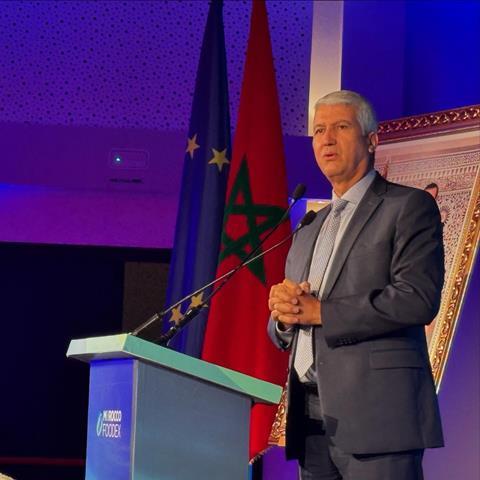At a conference in Agadir on 20 September, Morocco’s minister of agriculture called the need for exporters to adapt to new sustainability challenges an “opportunity” rather than a constraint
The Green Deal shouldn’t be seen as a constraint for Morocco, according to minister of agriculture Mohammed Sadiki, but rather as an opportunity to continue modernising the country’s agricultural practices, strengthen its farming sector and consolidate its position on international markets.

That was a key message from an international conference held last week in Agadir on the Green Deal and the new sustainability challenges for Moroccan food exports to the EU, with the minister stressing the need for companies to anticipate, adapt and innovate.
Organised by Morocco Foodex, the conference attracted around 400 Moroccan and European delegates, featuring various expert panels co-moderated by Fruitnet Media’s Chris White.
“It’s all about Morocco’s response to the huge challenge of the EU’s Green Deal, the long-term plan to re-align by 2050 European agriculture to the sustainability requirements of the Paris Accords,” said White. “The EU takes 80 per cent of Morocco’s food exports, so it’s a very important subject for them.”
The Green Deal aims to make Europe the first carbon neutral continent by 2050 through a profound transformation in the means of production and consumption.
Requirements include a reduction in greenhouse gas emissions, the responsible use of natural resources and the adoption of more sustainable farming practices, with companies at the conference sharing their experiences and discussing best practice.
On LinkedIn, White said it was his first visit to Morocco in a number of years. “Why did I leave it so long?” he wondered. “The fresh produce sector is advancing rapidly and the progress is very impressive.”
White also visited Karam Green Agro, a major tomato grower based an hour south of Agadir. “Its €8m packing house handles orders for top supermarkets in the UK, Germany, and elsewhere,” he said. “Crops are irrigated by a new desalination plant now supplying water to thousands of hectares in the Chtouka region.”



